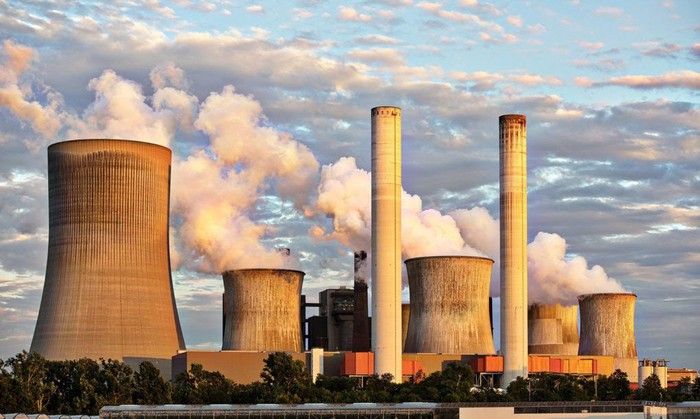The Importance of Reducing the Volume of Greenhouse Gas Emissions

Photo by: Inhabitat/Istimewa
(Istimewa)We’ve all felt the impact climate change has had in the last few years. The ever-rising temperature of the earth has caused more frequent and more intense extreme weather events, including heatwaves, hurricanes, droughts, and floods. These changes are fueled by a high level of greenhouse gas emissions, intensifying the greenhouse effects.
The greenhouse effect is the natural warming of the earth that results when gasses released into the atmosphere trap heat from the sun that would otherwise escape into space. This is a good thing because without it the earth will otherwise be a frozen, inhabitable place. But the intense rise of greenhouse gasses produced and trapped in the atmosphere is alarming.
According to the National Resources Defense Council (NRDC) for most of the past 800,000 years, the concentration of greenhouse gasses in the earth’s atmosphere was about 200 and 280 parts per million, then jumped to 400 parts per million in the past century alone. This jump is driven up by human activities such as burning fossil fuels and deforestation. The higher level of greenhouse gasses in the atmosphere is causing extra heat to be trapped and resulting in a rise in earth temperature.
Harmful effects of greenhouse gas emissions
There are five main greenhouse gasses that intensify the greenhouse effects and increase the earth’s temperature: Carbon Dioxide, Methane, Nitrous Oxide, and Fluorinated Gasses. Carbon dioxide accounts for about 76 percent of global human-caused emissions and can stick around for 100 to 10,000 years in the atmosphere. While carbon dioxide can be absorbed by plants, soil, and the ocean, the high rates of it being produced are disproportionate to the earth’s ability to naturally absorb them.
The two other natural gasses methane and nitrous oxide, are powerful greenhouse gasses that have a higher impact on global warming than carbon dioxide over a 100-year period. While fluorinated gasses are man-made and emitted from a variety of manufacturing and industrial processes. Fluorinated gasses account for just 2 percent of man-made global greenhouse gas emissions, but they trap substantially more heat than the others. They also have long atmospheric lifetimes, some can be up to tens of thousands of years.
Continuous release of these gasses without mitigation of absorbing them or reducing them in general causes the rise in earth temperature that ultimately results in the altering of the earth’s climate. They cause extreme weather changes, rising sea levels due to melting glaciers and sea ice, and altering natural ecosystems. A report done by NRDC in 2011 finds that for every degree Celsius that the earth heats up, crop yields will go down 5 to 15 percent. Threatening the continuity of food security.
PKT program to reduce greenhouse gas emissions
Big contributors to greenhouse gas emissions are the industrial sectors. According to NRDC, about one-fifth of global human-driven emissions come from the industrial sector that manufactures goods and raw materials. It is why the government and environmental organizations are urging companies and industrial players to put the environment at the forefront of their day-to-day operations.
Fertilizer producer PT Pupuk Kalimantan Timur (Kaltim), a subsidiary company for PT Pupuk Indonesia (Persero), was recently awarded for their efforts in reducing their carbon gas emission. In the last year, they have successfully reduced their volume of greenhouse gas emissions by 683,530.26 tons of CO2, equivalent to 16.73 percent of the company’s total emission burden. They also managed to achieve water efficiency by recycling 7,732,730 m3, or about 80.87 percent of the total water demand during 2020.
This triumphant result is due to the Life Cycle Assessment (LCA) policy that PT Pupuk Kaltim implemented to improve their environmental performances. This policy covers 5 environmental aspects, namely water efficiency and reducing the burden of wastewater pollution, reducing air pollution, 3Rs of toxic hazardous materials (B3), 3Rs of non-toxic hazardous materials (non-B3), and protecting biodiversity.
Hanggara Patrianta, Director of Operations and Productions of PT Pupuk Kaltim quoted by Liputan 6 said that “The LCA policy is part of Pupuk Kaltim’s commitment as a subsidiary of PT Pupuk Indonesia (Persero), to continue to focus on maintaining environmental sustainability. All aspects in it are the main concern to be improved every year,”
Pupuk Kaltim is also actively encouraging the realization of the SDGs goals in Indonesia by focusing on the social side that goes beyond implementing corporate social responsibility. They do this by initiating the PKT proactive program that is a form of the company’s participation to actively contribute as an agent of development, in addition to social responsibility for the community and stakeholders.
These programs include environmental improvement, health, education, empowerment to the human resource capacity development, such as the cultivation of family medicinal plants, development of coastal areas to integrated waste sorting and processing in collaboration with the Bontang City Government. Especially in the last few years, as the pandemic continues, Pupuk Kaltim increases its contribution by targeting public health and efforts to mitigate the impact in all fields.
These conscious efforts by companies to lower their carbon footprint and to implement a more environment-forward policy in their day-to-day operation are the sort of thing that could help to slow down the effects of global warming. The NRDC stated that the effort in reducing greenhouse gas emissions will require efforts at all levels, international, national, and local levels. The Indonesian government takes an active part in the joint effort by setting a free carbon emissions target by 2060.
“The government has a target to achieve zero net emissions by 2060 or if it can be faster than that. Therefore, this hard effort to transition fossil and renewable energy is our task,” said Coordinating Minister for Maritime Affairs and Investment Luhut Binsar Pandjaitan quoted from Merdeka. With companies such as PT Pupuk Kaltim actively trying to put the environment and sustainability forward, they have participated in an effort for a better tomorrow.
Written by: Safaanah
